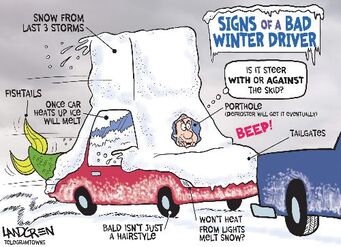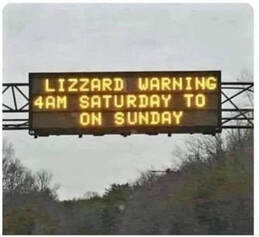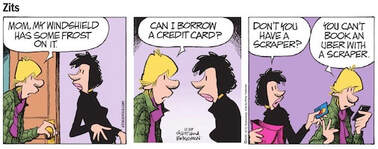Anyway, thinking about winter got me to thinking about driving in winter, which has been an annoyance of mine for as long as I’ve been driving. I DID have a minor mishap when I was a teenager by taking a corner a bit faster that I should have (I guess) on a city street about a block from my folks’ house and sliding into the front bumper of a neighbor’s car. This did no real damage to either vehicle, but was a bit scary for me as I’ve probably never felt so completely helpless behind the wheel before, or since. Still, while I do make a serious effort to be extra careful while driving during the winter, I have to wonder why so many people don’t seem to take winter driving more seriously.
So, I thought I’d take a look through my files and see if I could come up with a blog post related to driving in the winter which might be fun and, perhaps, a bit thought-provoking. Here’s what I came up with.
There ARE some ways one can spot a driver who MIGHT be of concern during bad weather. This cartoon suggests some of the things to watch out for:
🖖🏼 LLAP,
Dr. B
— Nelson Mandela
“Words are, in my not-so-humble opinion, our most inexhaustible source of magic; capable of both inflicting injury, and remedying it.” ― Albus Dumbledore, Harry Potter and the Deathly Hallows







 RSS Feed
RSS Feed